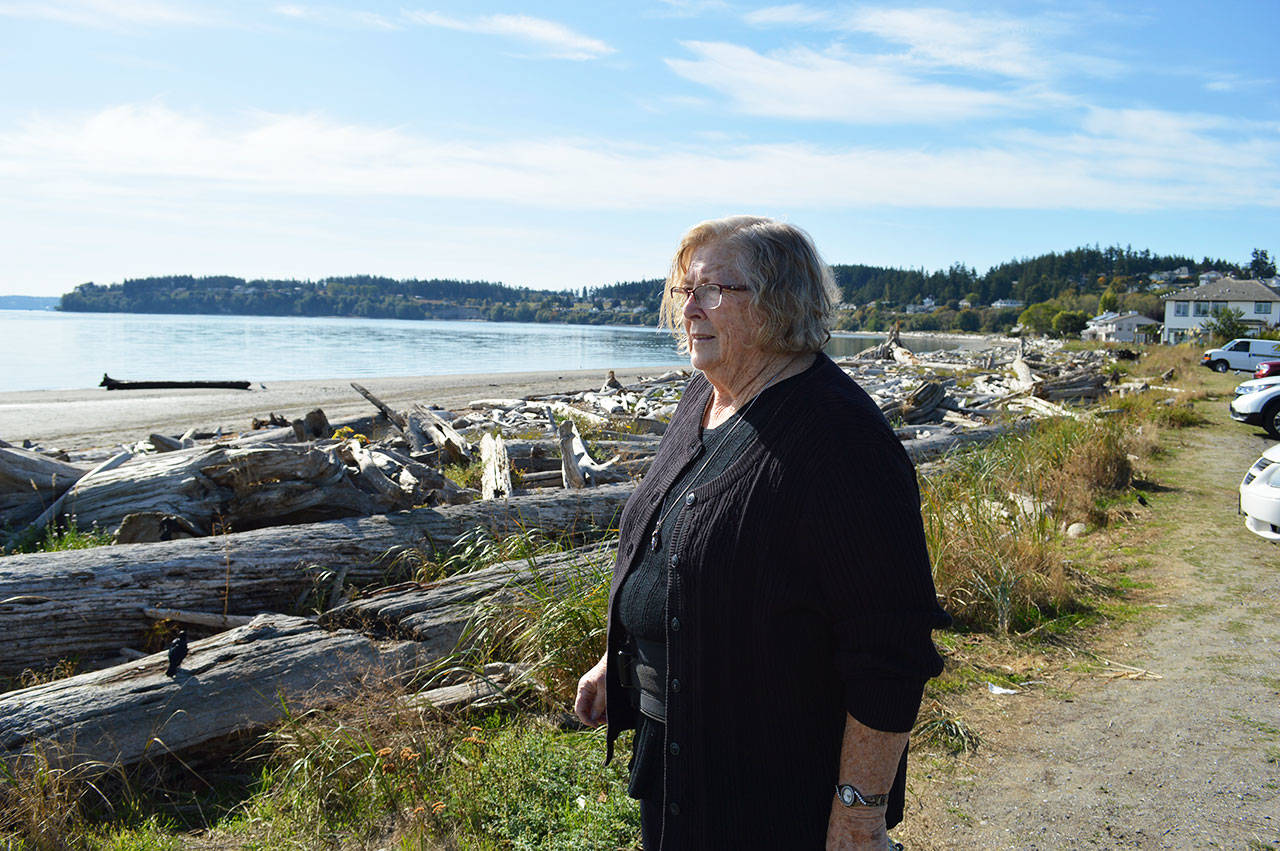In June 2004, Rowenna Houghton had her furniture packed and was ready to move to Oak Harbor. Then she received a call from her doctor while she was at work.
“I was a nurse myself, so I knew what the call meant,” she said.
Her doctor told her she had been diagnosed with breast cancer. Her plans to move to Whidbey Island from Garden Grove, Calif., were put on hold as she couldn’t transfer her insurance.
Houghton finally made the permanent move this month, 13 years later.
“Basically, it was ruining my life,” Houghton recalled thinking when she got the news.
After the talk with her doctor, she made a trip up to Whidbey to make sure her furniture was put in her new house, then returned to California for her lumpectomy. The surgery removed the tumor and three inches of lymphoid tissue.
After healing enough, she started radiation therapy. Though one of her doctors strongly recommended it, she opted not to undergo chemotherapy. She said three of her father’s aunts were diagnosed with breast cancer, and they had all lived into their 90s.
“For me, that was a very good prognosis for the future,” she said.
Houghton had witnessed the effects of chemo on family and friends and she decided to trust her belief that she could heal without it.
Trust in herself led to her cancer being discovered in the first place. After a shower one day, she saw an indentation in the mirror. There wasn’t a lump that could be felt, nor anything that even a mammogram could.
Houghton continued to show concern about the area for two years, until an ultrasound revealed the cancer.
Houghton went through radiation treatment two to three times a week for almost a year, significantly draining her stamina. She loves gardening, making crafts and sewing.
She continued to do most of the things she enjoys, but more slowly.
“You just have to go on, going at the pace you can go,” she said.
Her treatment became even more difficult when she fractured her rib. She was doing plumbing on a rental house she managed—something she admitted she probably shouldn’t have been doing—when she heard a pop.
“To lay on the radiation table was excruciating,” she said.
With everything involved in treatment, Houghton became depressed. She attended group therapy with others who were also going through treatment or who had completed breast cancer treatment. The support from the group was extremely helpful for her, and she continued going periodically for a year after her she finished treatment.
Her church community also offered a reassuring presence, and she said she felt comforted no matter what the outcome turned out to be.
However, the most “traumatizing” moment Houghton said she experienced happened this past year.
“I had never been asked the question how long has it been in remission, I’d always been asked how long since you’ve had the thing,” she said. “When they said remission to me, it brought a totally different feeling in my mind than the other question.”
She said the word changed her frame of mind; she hadn’t considered the possibility of it coming back.
Houghton was considered adequately treated almost a year after her initial surgery, although one of her doctors did feel it should continue to be monitored. She celebrated by driving to Whidbey. She loves to drive, and has made the drive from California to the island five times this year.
Houghton advises anyone who thinks they might have cancer to be persistent with their doctor.
“If you think there’s something there, question it past the first questioning if there’s a no,” she said.
She also emphasized that treatment options are a personal choice and not to feel ashamed of anything. For those undergoing treatment, she said: “Be with people who are positive or understanding with you.”
“Be willing to take time out and rest and give yourself your more time, but don’t isolate yourself.”



